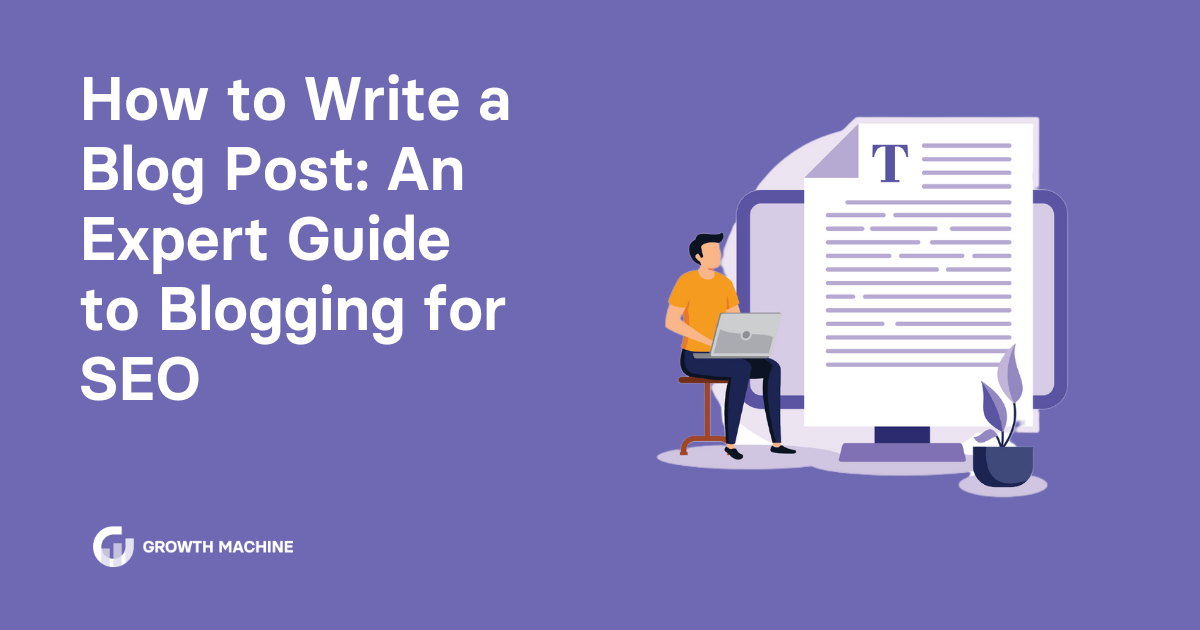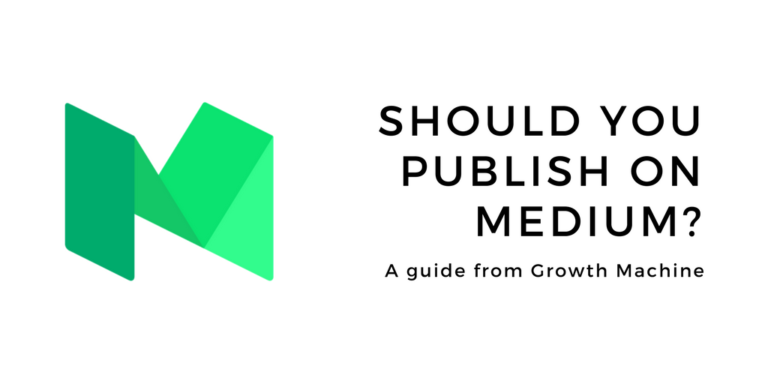How to Write a Blog Post: An Expert Guide to Blogging for SEO
If you’re a blogger or business owner seeking to enhance your online presence with content that ranks high on Google, you’ve come to the right place.
This beginner-friendly guide will introduce you to the essentials of writing the perfect blog post — one that’s not only reader-friendly, but also optimized for search engines.
Why You Need Blogging for SEO
Blogging is the foundation of a winning content marketing strategy. Here are some ways that blogging can help your brand shine online.
Build Brand Authority
Regular blogging helps establish your brand as an authority in your niche.
By creating and sharing insightful, well-researched content, you not only add value to your audience, you also earn their trust. And that’s not something to take lightly, since more than 80% of consumers consider trust a deciding factor in their buying decisions.
Keep in mind that search engines also favor content that demonstrates expertise and authority, which means the more your credibility grows, the higher your site will rank.
Enhance Online Visibility
There’s nothing search engines love more than fresh content.
By updating your blog on a regular basis, you send a signal to Google and other search engines that your website is active, which helps to maintain and improve your standing in the SERPs — or search engine results pages.
Plus, each new blog post you create is a new page that search engines can use for indexing, which provides more opportunities to rank for target keywords. It’s a win-win.
Connect With Your Target Audience
Along with social media, your blog is one of the best places for direct communication with your audience.
By creating meaningful and engaging content that speaks directly to their needs, you can foster higher audience engagement. This is also beneficial from an SEO standpoint, since it increases the amount of time spent on your site, reduces bounce rates, and increases the odds that visitors will come back for more.
Increase Opportunities for Sharing
High-quality, valuable blog content is more likely to be shared across social media, as well as generate backlinks from other sites.
These in turn drive more traffic to your site, improving your site’s SEO standing.
Anatomy of a Blog: What Separates a Good Blog Post from a Great One
Now that you understand the why, let’s delve into the how.
Writing your first blog post for SEO can be daunting, but by understanding some basics, you can create a solid foundation for content creation that gets more eyes on your brand.
1. Decide What Type of Blog You’ll Write
Before you put pen to paper (or in this case, finger to keyboard), first decide on the type of blog you want to write.
Consider your audience, the purpose of the blog, and what might help people connect to your brand. For example, are you looking to educate potential customers with how-to-guides? Or perhaps you’re looking to inform them with news updates in your industry.
This decision sets the tone for your piece, as well as determines the structure and content, which makes it an important first step.
2. Start With a Strong Title
Writing blog titles is both an art and a science. It’s the first thing your readers will see, so make it count!
Your title should be clear, enticing, and include your main keywords or keywords relevant to your post. It should set the tone and establish the topic clearly, inviting your audience to read on.
Struggling to write a blog title that turns heads? Check out some of the expert techniques we use at Growth Machine for crafting magnetic blog titles.
3. Add an Engaging Intro
Think of your introduction as the hook that keeps readers scrolling.
Kick things off with a bold statement, a story, or an interesting fact that connects to the central theme of the post.
Your intro should outline the problem or question, and how your blog will address it effectively.
4. Be Strategic with Your First Draft
Writing for SEO requires you to strike a fine balance between the organic flow of ideas and the strategic placement of keywords.
A good place to start is researching competitor articles to understand what works well in your space. Let these insights guide the structure of your first draft, expanding on the points from your intro. Weave in keywords naturally where possible to maintain SEO rankings without sacrificing readability.
5. Organize Into Subheadings and Add Structure
Once you’ve got your initial ideas down, it’s time to organize them into bite-sized sections with subheadings that guide readers through your narrative.
Not only does this make your post easier to read, but it helps improve SEO, as Google loves a well-structured piece of content.
Make sure each section delivers on the promises made in your intro, and contributes to the overall argument or narrative of your blog post.
6. Add a Compelling Call to Action
The conclusion of your blog post should not only tie the article together with a nice little bow, it should also inspire them to take action.
Whether you’re encouraging readers to visit other pages on your site, book a consult call, or subscribe to your newsletter, it should be compelling and clearly tie back to the content they just read.
For simplicity, we recommend sticking to a single CTA, making it easy for people to further engage with your brand.
7. Edit and Refine
Time to edit! When you’re done, proofread, then proofread some more to ensure that you’re communicating clearly and concisely.
The editing process is your chance to get rid of any fluff that might detract from your main thesis or idea.
Always keep your writing clear and concise, focusing on delivering value rather than flowery language or extra details that dilute your overall argument.
How to Write a Blog Post That Captivates Audiences and Search Engines in 5 Steps
Once you’ve written your first blog post, there are a few extra steps you need to take to make sure that it’s both reader-friendly and optimized for search engines.
Don’t skip these five steps if you want your beautifully crafted blog post to rank on the SERPs.
Step 1: Master Keyword Research
Suffering from a bout of writer’s block? If you’re not sure where to start when it comes to blog topics, keyword research is the answer.
Keyword research helps you understand which words and phrases your potential customers use when searching for your products or services online.
Keyword research tools like Google Keyword Planner, Ahrefs, or Semrush can help uncover keywords that strike that perfect balance between high search volume and low competition.
Specifically, we recommend focusing on long tail keywords, or phrases that are highly relevant to your offerings. These gems tend to be less competitive and more targeted, often leading to better conversion rates.
For example, our team uses Ahrefs to pinpoint keyword gaps that exist in our clients’ content, then use that data to brainstorm new blog topics for them.
Pro tip: You can also use competitor keywords to find topics that are relevant to your target audience. These are a game-changer when it comes to seeing what’s working and how you can make your content even stronger.
Step 2: Format Your Blog for SEO
What makes for a great blog post? It all comes down to formatting and readability.
Here are some areas to focus on when formatting your blog for both users and search engine optimization.
Headings and Subheadings
Your blog content should be well-organized with clear headings and subheadings. This structure not only makes your blog easier to read, but also helps search engines grasp the main topics of your post, boosting your SEO in the process.
Paragraphs and Sentences
A good rule of thumb is to keep your paragraphs short, about 40-55 words max. Nothing makes a user click out of a page quicker than huge, clunky blocks of text.
The same goes for sentence structure. Keep your sentences straightforward, focusing on a single idea or main point per sentence.
These practices are key for holding your readers’ attention and making your content more digestible.
If you’re a beginner to blogging, a writing tool like Grammarly or Hemingway can be your greatest ally in achieving clarity and conciseness in your writing.
Use Blog Templates
To streamline your writing process and ensure you have all the SEO elements of your blog covered, you can always use a blog post template.
Templates provide a predefined structure that includes all necessary sections and prompts that you need to develop your content effectively.
These are especially useful for first-time bloggers who are looking to write a successful blog without missing critical components.
Step 3: Optimize Your Meta Tags
Meta tags are snippets of texts that describe a page’s content. Think of them as a behind-the-scenes summary for search engines and users who are browsing through search results.
While you won’t typically find them on the page itself, they’re often built into the page’s code on the backend by a web developer or SEO expert.
Meta tags help search engines understand what your blog post is about and impact the likelihood of someone clicking on your content.
Here’s how you can utilize them to improve your search rankings.
Title Tags
Craft your title tags to include your primary keyword and keep them under 60 characters to ensure they display properly in search results.
It’s important not to miss this step, since the title tag essentially serves as the title of your page in the search results.
Remember: An enticing title can make all the difference when it comes to attracting organic traffic.
Meta Descriptions
While meta descriptions are not a direct ranking factor for Google, they do play a crucial role in improving click-through rates and overall user experience.
Meta descriptions are your opportunity to make a great first impression with your audience. It should entice your audience to discover more by clicking through to your blog post.
Make sure they actually capture the essence of what your blog is all about. After all, nobody likes clickbait, and it’s a surefire way to lose your audience’s trust.
Step 4: Leverage Internal Linking
If you’re wondering how to write a blog that keeps readers on your site longer, you’ll need to lean into internal links.
Internal links are essentially links to other pages on your site. You can pepper them into your blog posts to help Google crawl and index your site more effectively, while keeping readers engaged for longer periods of time.
To make the most of your internal links, always use relevant anchor text (the chunk of text to which the hyperlink is attached). These words or phrases should align with the linked page’s content, urging the reader to deepen their learning by checking out your other pages.
Struggling to earn quality links? Check out these link building fundamentals to boost your content’s authority faster.
Step 5: Engage Your Readers
So you’ve created a well-written blog post that’s packed with value. Well done! Now it’s time for the fun part — adding interactive elements that make it more fun and engaging for your audience.
Here’s how to write a blog that’s both engaging and valuable for your readers.
Add Interactive Elements
Interactive content such as polls, quizzes, or infographics are a fabulous way to engage with your readers.
The more time visitors spend on your blog, the better the page’s ranking potential. So incorporate these when you can to keep people hooked into the content.
Encourage Conversation
Create an elevated content experience by fostering community within your content. Encourage readers to leave comments and feedback, then engage with them to let them know that you’re listening.
Interacting with your audience and starting a dialogue is one of the best ways to build a loyal following and keep people coming back to your site again and again.
Include Social Sharing Buttons
Make it a no-brainer for readers to share your content by adding in social sharing buttons.
Most content management systems now allow you to add buttons to Facebook, Instagram, and X profiles. You can even encourage sharing to other blogging platforms like Medium and LinkedIn.
It seems like a small step, but it can drastically increase your content’s reach and impact.
Let Growth Machine Take the Wheel
If you’re new to writing blog posts, the writing process can feel a bit overwhelming. That’s where a skilled content partner like Growth Machine comes in.
Our team specializes in creating SEO-friendly blog content that not only resonates with your audience, but helps you climb the ranks in the search results faster.
From keyword research to writing engaging blog posts and building robust backlinks, our team can handle it all so you can focus on what you do best — running your business.
Reach out to us today to start making your content work for you.







